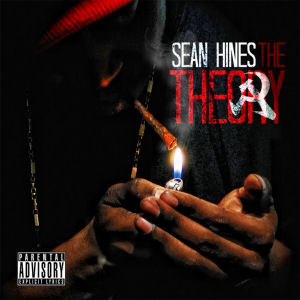“Sophomore Slump.” It’s an oft-cited reason for the below-par sequels and 2nd efforts coming from our favorite artists. It’s a term that I personally believe is thrown around too much. “Resurrection” was infinitely better than “Can I Have a Dollar”, “Late Registration” jumped the high bar set by “College Dropout”, and if you count “Do You Want More?!!!??!” as The Roots’ first official foray into Hip-hop, then “Illadelph Halflife” alone should sweep the pillars of the “sophomore slump” argument.
Despite all this, I’m sure that Sean Hines has been warned about that “Sophomore Slump” way before he was even finished with his first album. Traditionally the term should only apply to artists who’ve set extremely high standards on their first try, and then fail to meet said standards on their second. But the reason why I’m invoking the “sophomore slump” to tint the perspective of this review is this: I’m in the position of reviewing someone I’ve never heard of before, and it’s not their first try at making an album, it’s their 2nd.
“The Theory” is an album that keeps its heart beating in the Boston streets. Sean Hines keeps it simple behind the mic, his verses are injected with full doses of hustle, money, thuggin’ out, making it out of the hood while keeping one in the hood, pimpin’ hoes, and representing Boston. You won’t find complex schemes, hard punches, or philosophical theses in multisyllable rhymes, but you’ll find a well-constructed G-Rap formula that keeps itself running smooth with some solid work behind the boards.
The album kicks off in earnest with “Run For Your Money”. Producers Barrely, Hasheesh, and Peter Beatz spark things off right with some methodical keys, nicely accentuated strings, and vocals that have been perfectly mixed in. Sean Hines spits with that gangsta East Coast lean that belies his Boston roots, saying lines such as:
“Let me paint a picture for you of this nigga in the mirror
write the picture down so you can see a little clearer
it’s the man right here, man of the year
I aint ask for this spot, I’m just layin right here
Chyeah, so you can run and soak this game up
Gotta stay the same, real niggas neva change up”
It’s safe to say that Sean Hines doesn’t subscribe to the new trends that are defining the late 2000’s for Hip-hop: autotune, hi-tempo rap, electronica-based production, deviation from popular thug life topics, and one-two punchline schemes. Instead, Sean Hines stays proudly vintage with his methodical, lo-tempo, simple, and gangsta-as-fuck approach to rap. Sean Hines doesn’t want to assault the listener with sensory overload, he wants to make sure you hear him clearly as he throws those weighted blows.
“What Up” produced by Balabambino lightens the sound a little bit with some airy strings and a slightly faster tempo, allowing Sean Hines to give out some shoutouts to the people he respects while spittin’ some more gangsta shit. “Boulevard of Broken Dreams” has Barrely, Hasheesh, and Peter Beatz bringing the sound back to ground level. The beat sounds like they isolate the violins and the trumpets from the orchestra of an epic movie, and then paste on some slow and hard drums to set the table for Sean Hines to explain his struggle upwards from the hardscrabble streets of the inner city. The team of Barrely, Hasheesh, and Peter Beatz stays on for the best beat of the album on “All Night”, keeping the tempo low and laying a foundation of interchanging string loops and measured drums, adding some very nice improvisation on the keys. The same three producers do know how to diversify their sound, and come with relaxed guitars and faster tempo to let Sean Hines profess his love for Mary Jane in “Something About Mary”.
The only identifiable subpar track on the album is “Standing Tall”, produced by Formula and featuring Masspike Miles. The butchering of Stretch’s original work on 2Pac’s “Pain” with some loud ass Autotune singing from Masspike Miles made this a cringe-inducing listen.
The real consistency that comes on this album is Sean Hines’ verses. Each verse has the same formulaic approach, which might turn off some listeners, but might go unnoticed to others. His raps are like an extra metronome that keeps the album ticking, keeps the songs going forward, and keeps my hands from pressing fast-forward.
The highlight of this album will be the production. Sean Hines isn’t a genius behind the microphone, but he does know how to keep his schemes clean, his flow measured, his voice graveled and hard, and his lines imprinted with that inner-city Boston game. Sean Hines knows that staying within his box doesn’t risk much, which I’m not going to count against him in this particular occasion. After all, this is supposed to be his “sophomore slump”, I can’t fault him for staying orthodox when it’s still an album that’s worth keeping.

